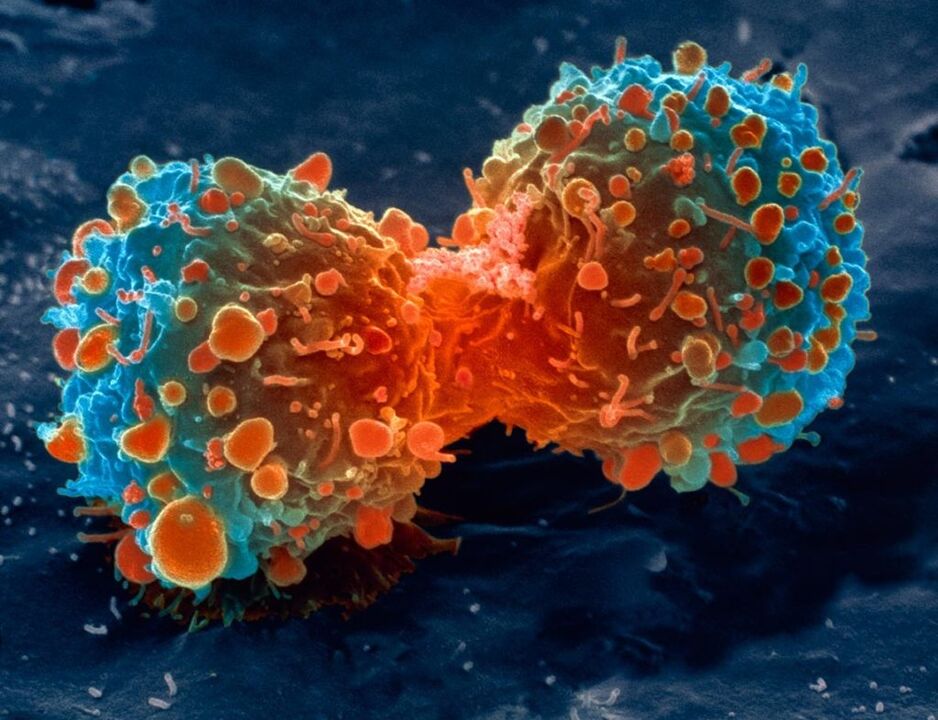There are several stages of prostatitis. They differ from each other in clinical symptoms and course features. The most effective is the treatment of the early stages of the development of inflammation of the prostate gland. At this stage, the disease does not have time to affect the function of the genitourinary system. The longer a man with prostatitis turns to a doctor for help, the less likely he is to fully recover.
Is prostatitis
Prostatitis is an inflammatory process that has appeared in the prostate gland. More than half of the older male population is personally familiar with the disease. Doctors distinguish several forms of the disease, each running in its own way. When making a diagnosis, the urologist determines the type of prostatitis present in the patient. Inflammation can be bacterial or non -bacterial. Both pathologies negatively affect the function of neighboring glands and organs.
The pathological process has 2 types of flow:
- spicy;
- Chronicle.
The initial symptoms of acute prostatitis appear from the first days of the disease. Their severity increases if a man does not try to overcome the inflammation. The chronic course is characterized by the absence of obvious symptoms of malaise. Therefore, this form of prostatitis is usually detected during routine examination by a urologist.

Acute prostatitis, even in its early stages, gives obvious symptoms, while chronic prostatitis is not noticeable for a long time.
Stages of chronic disease
Chronic prostatitis is divided into several stages, which follow each other if a man does not try to fight the disease. It can linger for years. In this case, the pathology periodically worsens. Remission and relapse of the disease gradually replace each other.
It just depends on the patient’s actions how long he or she will treat the disease, to what extent it will be achievable and whether he or she will be able to fully recover.
1 level
The early stages of the prostate are considered the safest for health. That is why doctors recommend starting treatment at this stage. But the difficulty lies in the fact that at first the disease does not cause much discomfort. A man does not always know that he is sick. If for some reason the patient is unable to cope with the pathological process in the prostate gland, he will move to a more difficult stage. And it will continue until the causative agent of the infection is stopped by therapy.
Stage 1 prostatitis is characterized by such symptoms that will be mild:
- Body temperature rose to 38 degrees. After a while, it can rise to the 40 degree mark;
- Severe pain is felt in the hip joint area;
- There is discomfort during bowel movements;
- Members become more sluggish;
- In the process of urination, you can see colorless mucus;
- Pain appears during urination;
- The urethra becomes narrower, so you have to strain to empty the bladder;
- At night, the frequent urge to the toilet begins to interfere;
- Sexual intercourse becomes shorter.
All of these signs are a good reason to visit a specialist. They will harass a man for up to 3 years. It is during this time that the course of the first stage of the disease is usually observed.
Symptoms of prostate inflammation will come and go, because at this stage the disease manifests itself in waves. It would seem to a man that the disease had subsided, but after a while he again betrayed himself.
Often, patients do not resolve the early stages of inflammation in the prostate gland. Because of this, the disease becomes chronic. It is very difficult to deal with this form of pathology. Treatment will take a long time and require a large amount of money to be invested. At the same time, there is no guarantee that the disease will subside upon completion of the therapeutic course.
A urologist can detect the early stages of prostatitis in a patient if he or she undergoes a series of diagnostic procedures. The disease was detected through such studies:
- Palpation of the rectum;
- Collection of secretions and sperm;
- General analysis of urine and blood;
- Sperm analysis;
- Ultrasound of the prostate.
Analysis of research results will allow experts to determine the disease and its causes. If prostatitis turns out to be contagious, then the man will be offered to take antibiotics and other medications that help restore the affected prostate tissue and normalize its performance. Non -infectious forms of inflammation also require drug therapy. Such treatment will be based on immunomodulatory drugs, dietary supplements and rectal suppositories with anti-inflammatory action.
If the early stages of the disease persist in an non -exacerbated form, then the patient is also given physiotherapy along with diet.

In the early stages, prostate inflammation responds well to treatment.
2 levels
Stage 2 prostatitis is accompanied by temporary weakness of symptoms. Many men consider this condition a recovery. They postpone visits to the doctor or stop paying due attention to therapy. But a decrease in the inflammatory process with such a diagnosis is a bad omen. During the first stage of the disease occurs, there is an increase in the size of the prostate due to the active division of its cells. As a result, scars form on the walls. Rupture of blood vessels leads to disruption of blood supply to the prostate gland.
The second stage of prostatitis is usually accompanied by the following symptoms:
- Violation of biological rhythms;
- Anxiety;
- Pain when urinating;
- Heart failure;
- Severity of sciatica;
- Loss of orgasm;
- Lack of sexual desire.
At this stage of prostatitis in men, it is difficult to determine the specific localization of the pain syndrome correctly. Initially, pain is felt at the location of the prostate. After it spreads to all small pelvic areas.
Patients with stage 2 prostatitis are recommended to take immunostimulatory medications and attend physiotherapy procedures. So that the situation does not become more complicated, they need to avoid hypothermia, abandon bad habits and normalize diet.

It is very important to adopt a healthy lifestyle
3 levels
The third stage of the development of inflammation in the prostate gland brings the most problems. In this case, a man was diagnosed with a chronic form of prostatitis. At this stage, there are serious changes in the prostate tissue. They began to die quickly. Scars formed in the last stage strongly squeeze the bladder. This gives rise to the development of urinary retention, which is a very dangerous complication.
Prostatitis at 3 degrees of development leads to the emergence of pathological changes in the kidneys and bladder. The danger lies in the fact that it is irreversible. At this stage, men often complain of sciatica.
The last stage of disease development has the following symptoms:
- Frequent urge to urinate;
- Severe pain during urination;
- Poor urine flow;
- Cutting in the kidney area;
- Less sensation of emptying the bladder completely after going to the toilet.
The last stage of chronic prostatitis is considered the most dangerous. At this stage, the dead cells are replaced by connective tissue. These changes lead to a reduction in the size of the prostate gland and narrowing of the urinary tract. Due to the fact that the system is not functioning properly, a man develops the formation of cysts. He also suffered from impotence.
Because in the last stages of the disease the symptoms are very pronounced, the life of the patient is very complicated. The constant pain haunted him day and night. Often, for the first time, men turn to a urologist precisely because of the obvious symptoms of prostatitis. But, because an irreversible process has taken place in the gland at this time, doctors do not guarantee getting rid of the pathology even if the patient meets all their requirements. It is difficult for them to predict how inflammation will behave at a particular stage of development.
If the case is severe, and antibiotics do not bring significant relief, then the patient is referred for surgery to partially or completely remove the prostate gland.

In stage 3, the pain becomes severe, and the changes in the organs become irreversible.
Acute disease stage
It is with acute inflammation in the glandular organs that prostatitis begins. It gradually increased. The prostate gland is affected by an infection that develops safely in it with a weakened immune system. Chronic prostatitis is observed in those who are unable to cope with the acute form of pathology. In this case, the man will not feel the special symptoms of the disease until it is in the acute stage.
Inflammation of the prostate, caused by an infectious agent, manifests itself from the first days of the disease. Therefore, this form of pathology is diagnosed earlier than chronic. Acute prostatitis is characterized by slightly different stages of development. Doctors distinguish 4 degrees of the disease, which follow each other.
catarrhal stage
At this stage, the inflammatory process in the prostate begins. It spreads in the lobular duct tissue of the gland. There is swelling of the prostate, which continues to grow. At this stage, the man has no purulent discharge, which may indicate an infection of the glands. He will be bothered by other symptoms:
- Frequent desire to go to the toilet;
- Painful urination;
- General weakness in the body;
- changing psycho-emotional states;
- mood apathy;
- Irritation.
Another distinguishing feature of acute prostatitis at stage 1 of development is the enlargement of the prostate gland. Although these symptoms are also characteristic of the chronic course of pathology. The doctor will be able to see this feature during palpation of the problem area. Special analysis allows to confirm the fears of experts. He must refer the patient to the delivery of prostate secretions to study its composition. With prostatitis, an increase in the number of leukocytes will be found in the fluid. Also in the sample, the doctor will detect pus and mucus impurities.
Treatment of the catarrhal stage of acute prostatitis consists of taking a group of drugs that block inflammation and reduce the severity of the main symptoms of the disease.
Massage with such a pathological course is strictly prohibited, as are many other similar physiotherapeutic procedures.
On average, treatment of the early stages of acute inflammation of the prostate gland takes about 2 weeks. At this time, the patient completely gets rid of the disease. The positive result of therapy is due to the fact that it is started before the moment when the pathology has not yet successfully led to the development of irreversible processes in the organs of the genitourinary system.
Follicular rank
With the development of this phase of prostatitis, the swelling spreads to the follicles and excretory tract of the prostate. Its structure begins to compress neighboring tissues, causing serious pus. The symptoms of the disease intensify and become more pronounced and noticeable. In this situation, men complain of the following signs of lethargy:
- Body temperature rose to 38 degrees and did not fall;
- mood apathy;
- The appearance of pain in the groin area;
- Spread of pain to the genitals, anal area and hip joints;
- painful urination;
- Pain in the head of the penis;
- Defecation becomes more difficult;
- Excretion of a minimum amount of urine.
When researching problem areas, you can detect increased asymmetry in prostate tissue. While checking the results of urinalysis, the doctor will detect the presence of an excessive amount of pus and white blood cells in the sample.
It is very important to begin immediate treatment of acute stage of follicular prostatitis, otherwise the malignant process can develop in the structure of the glandular organs.

If therapy is neglected, there is a risk of getting cancer
Parenchymal rating
Prostate tissue is subject to ongoing damage. Because of this, a large number of small pustules form in it. The urinary tract is compressed again. As a result, there is acute urinary retention. Other symptoms of the parenchymal stage are the following conditions:
- Painful bowel movements;
- Increased body temperature to 39 degrees or more;
- Persistent thirst;
- Loss of appetite;
- severe weakness;
- Chronic fatigue;
- Difficulty urinating;
- Severe pain in the pelvis, anus and lower back;
- Flatulence and constipation.
Abnormal mucus impurities begin to appear in the stool, as inflammation affects the intestines. The glands become rather large, and their contours are blurred.
Stages of abscess formation
This stage of acute prostatitis is accompanied by several painful symptoms that prevent a man from living a full life. They are more pronounced than in the early stages of development of the inflammatory process. At this stage, small pustules merge into a whole formation. The purulent mass quickly accumulates in it. When it gets too big, it breaks. As a result, the accumulated pus comes out through the urethra. At the abscess stage, the patient is tormented by the following symptoms:
- severe lethargy;
- Increased body temperature up to 40 degrees;
- Passive to any action;
- Intense pain in the anus and genitals;
- Difficulty defecating and urinating.
If a man in this condition is not given adequate treatment, he can die. It is very important to remove the abscess so that the patient feels better. Only then will the main signs of the disease begin to subside.
Complications
The sooner the treatment of prostatitis is started, the less danger that the inflammatory process will bring to the body. That is why it is better to deal with the disease at an early stage. But not all men adhere to this recommendation, as many hope that the disease will go away on its own. Because of this, the disease develops and leads to the development of unpleasant complications. Ignoring expert help, a person faces the following consequences of untreated prostatitis:
- The emergence of various inflammatory processes in the organs of the genitourinary system;
- Reduction of sexual drive;
- Psychological disorders;
- Infertility;
- Erectile dysfunction.
It is not uncommon for men who have ever had prostatitis to have a normal erection. Because of this the patient's sexual activity is significantly reduced. In some cases, the absence of ejaculation is considered a complication. The male penis may fall off abruptly. If such deviations are found, it is necessary to visit a specialist to find out the nature of the violation and find a way to get rid of it.
Do not forget that the inflammatory process can actively spread to neighboring tissues and organs. That is why, against the background of prostatitis, men also suffer from cystitis and urethritis. The disease leads to a violation of the outflow of urine. The onset of chronic incontinence is not excluded.
Impotence is considered by men to be one of the most severe complications of acute or chronic prostatitis. With such deviations, the ability to stimulate is lost. This is due to inflammation, which interferes with the process of tissue nutrition. Edema does not allow the cavernous body to be filled with blood. Medicine has learned to treat these complications with long -term drug therapy. However, not all patients who have completed such a course are satisfied with the results.
It is called prostatitis the main cause of the development of stage 1 infertility. In this case, a variant of the disease is considered, in which the composition of semen changes. The secret changes the level of acidity and its viscosity. All these deviations were detected during the study of sperm samples, which were submitted for analysis.
With infertility problems, men should contact an andrologist. It will help you choose the best treatment.
If prostatitis is severe, then it will lead to the emergence of stage 2 infertility. This condition is not suitable for therapeutic treatment.
The psycho-emotional state of a man suffers greatly from prostate inflammation. Frequent failures in the intimate environment make him anxious. Against this background, depression appears, which exacerbates the general condition of the patient.
More than 30% of patients who have been diagnosed with prostatitis experience psycho-emotional experiences. Psychologists help them restore male libido, which decreases due to stress.

Impotence and infertility are common complications of this disease
Remission of chronic prostatitis
If prostatitis treatment is started, the patient can achieve his remission. This is the name of a condition in which there is a significant weakness in the symptoms of the disease or its complete disappearance. Prostatitis in remission is prescribed in most patients who have completed a full course of treatment. This period varies from person to person. If a man does not comply with the doctor's recommendations, then after a while there will be a worsening of prostate inflammation. And then the patient has to be treated again.
Kind of
Remission with prostatitis can be complete and incomplete. In the first case, after full therapy, the man is no longer bothered by all pathological symptoms. He forgot about them for a long time. Incomplete remission usually lasts no more than 3 months. At this time, patients may complain of minor symptoms that characterize prostatitis. For example, many continue to experience painful urination and discomfort in the pelvic area.
Period
Even experienced doctors sometimes find it very difficult to predict how long remission will last for a particular person who has been treated for prostatitis. These indicators are individual. The length of this period directly depends on several factors:
- Disease -causing agents;
- General condition of the body;
- Quality of treatment;
- Severity of the disease;
- Stage of the disease.
It also takes into account how carefully the patient follows the recommendations of the attending physician, which is related to the prevention of recurrence of prostatitis.
If a man meets all the needs of a specialist and carefully takes care of his own health, then his forgiveness can last for decades. Sometimes the disease subsides completely.
Prediction
If a patient who has to undergo treatment of chronic prostatitis begins to lead a proper lifestyle, will take control tests and regularly visit his doctor, as well as take medication to prevent recurrence of prostate inflammation, then he will get a good recovery. prognosis. In this case, the disease may not bother a person at all.
If a man is still ill with prostatitis, he should immediately begin therapy. For this you need to contact a specialist. A full examination of the genitourinary system will help the urologist select the appropriate treatment that will stop the disease and eliminate the complications that have arisen.






























